第1章 PREFACE(1)
The Fortunes & Misfortunesof the FamousMoll Flanders&c.
Who was Born in Newgate, and during a Life of continu'd Variety for Threescore Years, besides her Childhood, was Twelve Year a Whore, five times a Wife (whereof once to her own Brother), Twelve Year a Thief, Eight Year a Transported Felon in Virginia, at last grew Rich, liv'd Honest, and dies a Penitent.
Written from her own Memorandums . . .
by Daniel Defoe
The world is so taken up of late with novels and romances, that it will be hard for a private history to be taken for genuine, where the names and other circumstances of the person are concealed, and on this account we must be content to leave the reader to pass his own opinion upon the ensuing sheet, and take it just as he pleases.
The author is here supposed to be writing her own history, and in the very beginning of her account she gives the reasons why she thinks fit to conceal her true name, after which there is no occasion to say any more about that.
It is true that the original of this story is put into new words, and the style of the famous lady we here speak of is a little altered; particularly she is made to tell her own tale in modester words that she told it at first, the copy which came first to hand having been written in language more like one still in Newgate than one grown penitent and humble, as she afterwards pretends to be.
The pen employed in finishing her story, and making it what you now see it to be, has had no little difficulty to put it into a dress fit to be seen, and to make it speak language fit to be read. When a woman debauched from her youth, nay, even being the offspring of debauchery and vice, comes to give an account of all her vicious practices, and even to descend to the particular occasions and circumstances by which she ran through in threescore years, an author must be hard put to it wrap it up so clean as not to give room, especially for vicious readers, to turn it to his disadvantage.
All possible care, however, has been taken to give no lewd ideas, no immodest turns in the new dressing up of this story;no, not to the worst parts of her expressions. To this purpose some of the vicious part of her life, which could not be modestly told, is quite left out, and several other parts are very much shortened. What is left 'tis hoped will not offend the chastest reader or the modest hearer; and as the best use is made even of the worst story, the moral 'tis hoped will keep the reader serious, even where the story might incline him to be otherwise. To give the history of a wicked life repented of, necessarily requires that thewicked part should be make as wicked as the real history of it will bear, to illustrate and give a beauty to the penitent part, which is certainly the best and brightest, if related with equal spirit and life.
It is suggested there cannot be the same life, the same brightness and beauty, in relating the penitent part as is in the criminal part. If there is any truth in that suggestion, I must be allowed to say 'tis because there is not the same taste and relish in the reading, and indeed it is to true that the difference lies not in the real worth of the subject so much as in the gust and palate of the reader.
But as this work is chiefly recommended to those who know how to read it, and how to make the good uses of it which the story all along recommends to them, so it is to be hoped that such readers will be more leased with the moral than the fable, with the application than with the relation, and with the end of the writer than with the life of the person written of.
There is in this story abundance of delightful incidents, and all of them usefully applied. There is an agreeable turn artfully given them in the relating, that naturally instructs the reader, either one way or other. The first part of her lewd life with the young gentleman at Colchester has so many happy turns given it to expose the crime, and warn all whose circumstances are adapted to it, of the ruinous end of such things, and the foolish, thoughtless, and abhorred conduct of both the parties, that it abundantly atones for all the lively description she gives of her folly and wickedness.
The repentance of her lover at the Bath, and how brought by the just alarm of his fit of sickness to abandon her; the just caution given there against even the lawful intimacies of the dearest friends, and how unable they are to preserve the most solemn resolutions of virtue without divine assistance; these are parts which, to a just discernment, will appear to have more real beauty in them all the amorous chain of story which introduces it.
In a word, as the whole relation is carefully garbled of all the levity and looseness that was in it, so it all applied, and with the utmost care, to virtuous and religious uses. None can, without being guilty of manifest injustice, cast any reproach upon it, or upon our design in publishing it.